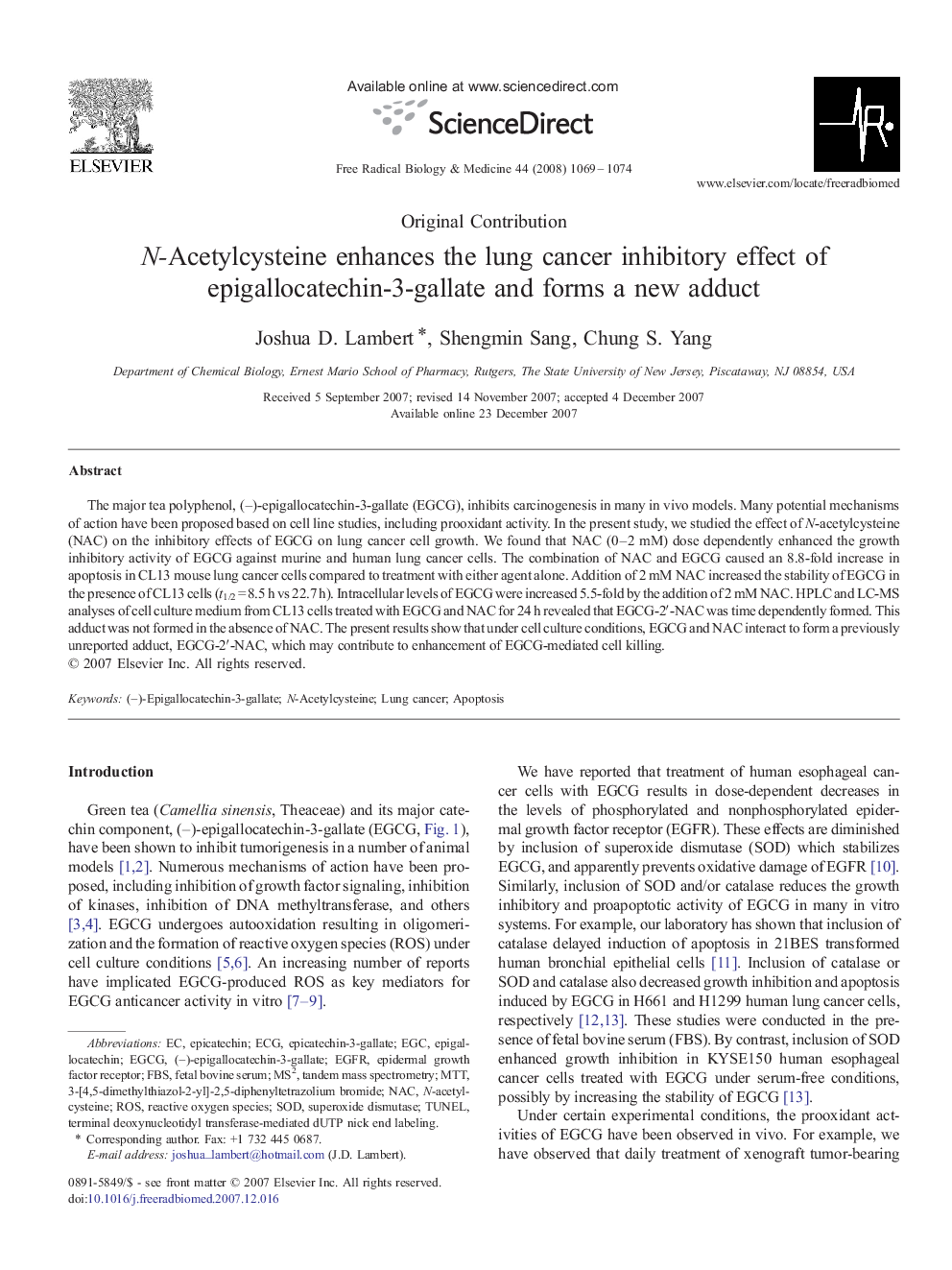| Article ID | Journal | Published Year | Pages | File Type |
|---|---|---|---|---|
| 1910792 | Free Radical Biology and Medicine | 2008 | 6 Pages |
The major tea polyphenol, (–)-epigallocatechin-3-gallate (EGCG), inhibits carcinogenesis in many in vivo models. Many potential mechanisms of action have been proposed based on cell line studies, including prooxidant activity. In the present study, we studied the effect of N-acetylcysteine (NAC) on the inhibitory effects of EGCG on lung cancer cell growth. We found that NAC (0–2 mM) dose dependently enhanced the growth inhibitory activity of EGCG against murine and human lung cancer cells. The combination of NAC and EGCG caused an 8.8-fold increase in apoptosis in CL13 mouse lung cancer cells compared to treatment with either agent alone. Addition of 2 mM NAC increased the stability of EGCG in the presence of CL13 cells (t1/2 = 8.5 h vs 22.7 h). Intracellular levels of EGCG were increased 5.5-fold by the addition of 2 mM NAC. HPLC and LC-MS analyses of cell culture medium from CL13 cells treated with EGCG and NAC for 24 h revealed that EGCG-2′-NAC was time dependently formed. This adduct was not formed in the absence of NAC. The present results show that under cell culture conditions, EGCG and NAC interact to form a previously unreported adduct, EGCG-2′-NAC, which may contribute to enhancement of EGCG-mediated cell killing.
